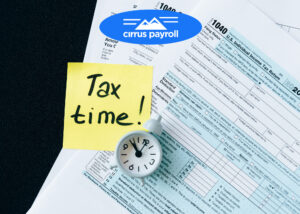10 Tax Write-Offs for Business Owners
10 Tax Write-Offs for Business Owners
If you’re a business owner, one of the many benefits of owning a business is the ability to take advantage of tax write-offs. Tax write-offs are deductions that you can take on your business tax return to reduce the amount of taxable income you have to pay taxes on. Here are some of the most common tax write-offs that business owners should know about.
1. Home Office Deduction
If you work from home, you may be able to take a home office deduction. To qualify for this deduction, you must have a designated space in your home that you use exclusively for business purposes. This can be a room or a portion of a room, such as a desk or workspace. You can deduct a portion of your rent, mortgage, utilities, and other expenses based on the percentage of your home that is used for business.
2. Vehicle Expenses
If you use a vehicle for business purposes, you can deduct the expenses associated with the vehicle. This includes gas, oil changes, repairs, and even insurance. You can either deduct the actual expenses or use the standard mileage rate, which is 65.5 cents per mile starting January 1, 2023. You cannot deduct expenses related to personal use of the vehicle.
3. Travel Expenses
If you travel for business purposes, you can deduct the expenses associated with your trip. This includes airfare, hotel accommodations, rental cars, and meals. Keep in mind that you can only deduct expenses that are directly related to your business, and you cannot deduct personal expenses.
4. Equipment and Supplies
If you purchase equipment or supplies for your business, you can deduct the cost on your tax return. This includes computers, office furniture, software, postage, and even printer ink. Keep in mind that you can only deduct the cost of the item in the year that it was purchased, so it’s important to keep good records.
5. Retirement Plans
If you have a retirement plan for your business, such as a 401(k) or a SEP IRA, you can deduct your contributions on your tax return. This not only helps you save for retirement, but it also reduces your taxable income.
6. Health Insurance Premiums
If you provide health insurance for your employees, you can deduct the premiums on your tax return. This includes medical, dental, and even long-term care insurance.
7. Depreciation
If you purchase property for your business, such as a building or equipment, you can deduct the cost of the property over time through depreciation. This allows you to deduct a portion of the cost each year, which can help reduce your taxable income.
8. Professional Services
If you hire a professional, such as an accountant or attorney, you can deduct their fees on your tax return. This includes fees for tax preparation, legal advice, and even consulting services.
9. Advertising and Marketing
If you advertise your business, you can deduct the cost of the advertising on your tax return. This includes print ads, online ads, and even billboards. You can also deduct the cost of promotional items, such as pens or magnets.
10. Charitable Donations
If you donate to a qualified charity, you can deduct the donation on your tax return. This not only helps the charity, but it also reduces your taxable income.
It’s important to keep accurate records of all of your business expenses so that you can take advantage of these tax write-offs. This includes keeping receipts, invoices, and bank statements. You should also consider hiring a professional accountant to help you with your taxes, as they can help you maximize your deductions and ensure that you are in compliance with all of the tax laws.
Tax write-offs are a great benefit of owning a business, and can help reduce your taxable income and save you money on your taxes.
More info for your small business:
What Restaurant owners need to know about payroll
My Payroll Provider Asked Me To Sign A Form 8655…What Is It?

